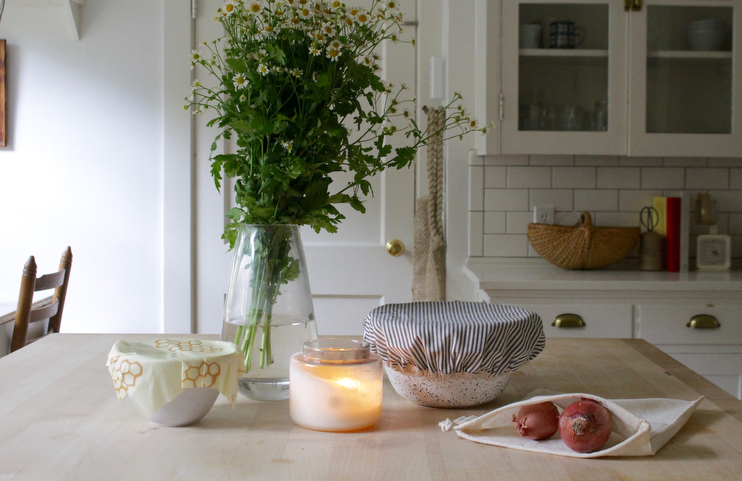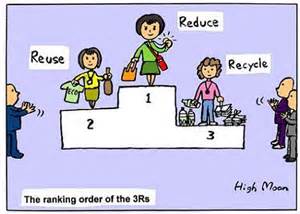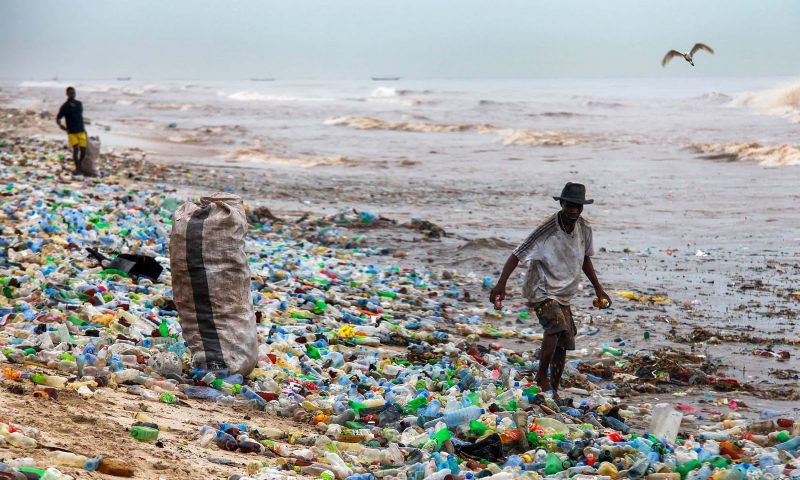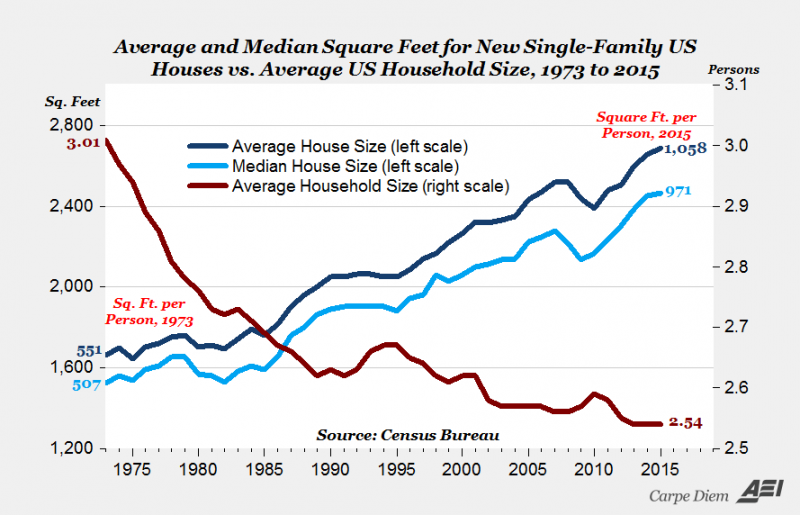How consuming less and adopting a zero waste home strategy creates prosperity and freedom.

“Zero waste aims at eliminating as much trash from the household as possible,” Bea Johnson, blogger and author of the bestselling book, Zero Waste Home, said. “What it ultimately does is translate into a simple, richer life based on experience instead of things.”
There is a complete disconnect between the trash can and the landfill.
For most of us, trash just goes away. We are completely mindless about the trash, we feel good that we are recycling, however, this is where the action stops. the average American creates around four pounds of trash a day and also creates more than 30 pounds of upstream trash a day as a by-product of this daily consumption.
The majority of that trash ends up in the landfill. In America, according to the EPA, “plastic waste accounted for 33.3 million tons of trash produced in 2014. Of that, just 3.17 million tons were recovered by recycling.” That means that 30.13 MILLION TONS of plastic went into a landfill in 2014. Plastic never biodegrades, and we are using more and more of it each year.
“we never actually throw anything away – it’s really just put somewhere else.”
Rachelle Strauss, Zero Waste Week
A study published in the Science Advances peer-reviewed journal in 2017 found a whopping 91 percent of the plastic in the world doesn’t get recycled, and around 79 percent makes its way to landfills or other parts of the environment. If those recycling and consumption rates continue, around 12,000 metric tons of plastic waste will crowd landfills by 2050, researchers estimate.
Landfills are generally smelly and gross, they often get located in poorer communities where citizens have less political clout (I certainly would not want one in my backyard) and they create harmful by-products such as ammonia and sulfates, they can pollute the groundwater, not to mention methane and carbon dioxide which trap heat in the atmosphere and cause global warming. You know the rest.
Lydia and Samuel McMullen, a brother-sister team and Ann Arbor MI U of M students and founders of Live Zero Waste say that two people create about 20,000 pounds of waste a year! And that we are confronted with a big issue where cause and effect are completely separated – We don’t see the impact that our lifestyle has.
Consumerism and the illusion of prosperity
Consumerism is so pervasive in our society, that even the thought of consuming less is generally negatively associated with having to scrimp or ration, being disadvantaged or less sociologically and economically successful. (Read on and I will show you that consuming less actually makes you more prosperous.)
Over the years we have been convinced to buy more, replace often, upgrade, and to use disposables for convenience sake – to save time. The forces of marketing and consumerism have convinced us that we need more stuff disposable stuff and new stuff.
We can see the effects of consumerism in the increase in average home size over time – New US homes built in 2016 were nearly 1,000 square feet larger than in 1973 and living space per person has nearly doubled. We are beginning to see signs that the average home size is declining.
Bea Johnson, author of Zero Waste Home says recycling is not the solution. She says the solution is to prevent waste from coming into the home in the first place – REDUCE. Recycle less! In her Youtube video, she explains that what happens to trash when it is recycled is uncertain. It could end up in the landfill anyway. Also, once a product is recycled, that product often is not recyclable – so it ends up in the landfill.
The answer, according to Bea, is to break the cycle of buy and discard. She says you will discover a better you. You will free yourself from the fictitious needs that the marketers have created. You will no longer spend time and money buying and disposing of items, but you will be focused on what matters most. You will have time to spend with friends and family, you will have more money to fund your dreams. Use and recycle less and live more! Be mindful of what we are doing with what we are using.
The Three R’s – Reduce, Reuse, Recycle

The three r’s in order of importance – 1) Reduce, 2) Reuse and 3) Recycle. There is a fourth, Rot, or compost.
6 ways how moving toward a zero waste lifestyle at home creates a simpler more prosperous life:
Although the obvious benefits of producing no garbage or low garbage are environmental, they don’t stop there. In addition to reducing your impact on the planet, here are some other benefits of your new zero-waste, low waste lifestyle:
- You will spend less money: Save money and consume way less than before. 15 percent of the price of a product is packaging. When you use disposables you are throwing your money away. You will spend less money and be happier with your purchases: When we become more mindful about each purchase, we realize many things we are not really needed. Going trash-free means becoming much more conscientious about your purchases. You’ll deliberately buy items that can serve dual purposes, and you’ll look for durable goods that last a long time before breaking. You will need less space for the items that you do have – less storage containers and dressers, smaller closets, ultimately, maybe even a smaller house that costs less to heat/cool and maintain.
- You will eat healthier: And if you pair that with some good exercise, you’ll lose weight and feel better. Cutting out garbage means eating more whole foods that don’t come overpackaged in plastic. You’ll shop the periphery of the grocery store and frequent local farmers’ markets, buying good-for-you foods like fruits and veggies and locally sourced meat, dairy, and eggs. Here are just a few of the local stores where you can buy bulk: Local farmers markets, Krogers, Whole Foods, Busch’s, By The Pound, Ann Arbor and Ypsilanti Food Co Op.
- You will support local businesses: Shopping locally benefits the environment, because goods are not trucked all over the country for consumption. Equally important is the impact you can have on your local community when you support family-owned establishments instead of big corporations. Studies show that “three times as much money stays in the local economy when you buy goods and services from locally owned businesses instead of national chain stores,” according to the Institute for Local Self-Reliance.
- You’ll do your part to leave a legacy and preserve the planet for future generations: It’s no secret the earth is in trouble. Landfills are overflowing, our water systems are becoming polluted, animal species are becoming endangered and going extinct at an alarming rate, and we are finding toxic chemicals in our food and beauty products. Every time you choose sustainable over throwaway, you’re doing your part to eliminate these problems. Feel proud of the legacy you are leaving for others. What legacy are leaving for our family? What example are we setting for others
- You will reduce your exposure to toxic chemicals and artificial colors and sweeteners: A a low trash, no trash life means you’ll choose healthier options than the prepackaged, processed foods that line the grocery store shelves. We know food-like substances like Pop-Tarts and Cheetos aren’t good for us—avoiding the garbage is just one more reason to look for healthier alternatives.
- You will live more simply and with less stress: Your life just got a whole lot simpler: We all wish we had a little more time in the day. Low trashn No Trash living helps streamline many areas of your life, from grocery shopping to cleaning the house. You’ll learn to repurpose everyday products to do double duty, in the kitchen and in the cleaning bucket. You’ll spend less time at the store and more time at home with family and friends. You will have more free time for what matters most; a life made on experiences and on being instead of having.
If you are already living a no waste, low waste lifestyle, that is fantastic! If not, I hope this article get your thinking focused on ways to reduce consumptioin and waste, while improving your health, relationships and your bottom line.
Below are many resources if you want to dive into this deeper.
- https://zerowastehome.com/
- https://livezerowaste.org/
- https://www.huffingtonpost.com/entry/reduce-home-waste_us_57912d0be4b0fc06ec5c4b56
- https://www.smallfootprintfamily.com/37-ways-to-reduce-trash
- https://www.advanceddisposal.com/for-mother-earth/education-zone/recycling-at-home-work.aspx
- https://www.theguardian.com/environment/2017/mar/13/waste-plastic-food-packaging-recycling-throwaway-culture-dave-hall
- https://www.breweryvivant.com/sustainability/
Feel free to reach out with any questions you have about living with less waste!
Contact Us
Contact us for a no-obligation home selling or buying consultation today. You can get a free estimated value report of your home as well!
Our search tool allows you to refine by area, price, age, amenities, schools, and more. You can also search for homes by neighborhood here. Check out our always-updated list of upcoming open houses here!












